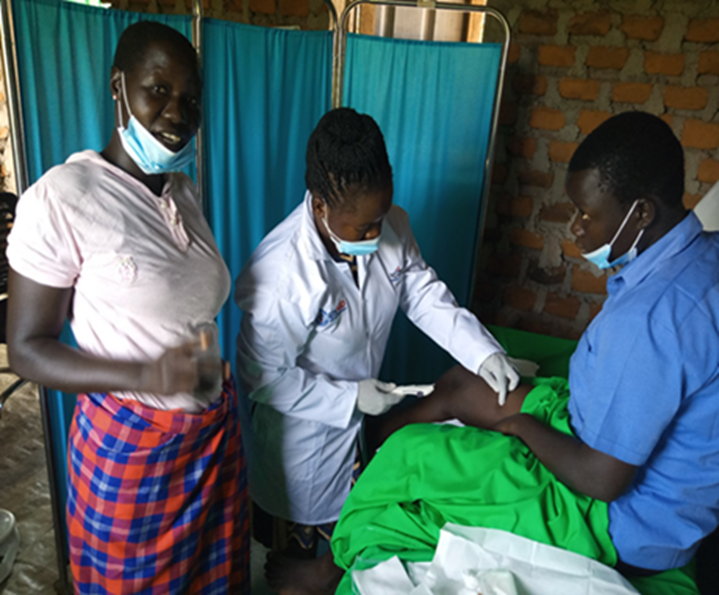Empowering a Mother to Overcome Social Taboos
Published on April 22, 2022

Young women like Abalo Winny who live in South Sudan’s Magwi County now can make informed decisions about their reproductive health and plan for their future. For women in this part of the world, rooted social norms can act as barriers for women seeking voluntary family planning services.
Abalo’s mother, Betty Akech, 39, always hoped her daughters could avoid early marriage and pregnancy but didn’t know how or where to get help. Cultural taboos and social beliefs kept her from speaking with her daughters about family planning.
According to UNICEF, 52 percent of all girls in South Sudan are married before 18 years of age. Child marriage often leads to early pregnancies. About one-third of all girls in South Sudan are pregnant before they are 15.
Betty received a visit from her church leader–trained to start community dialogues on family planning through MOMENTUM Integrated Health Resilience–who spoke with her about the importance of preventing early pregnancy and early marriage, and ways of seeking reproductive health care for adolescents.
USAID’s MOMENTUM, a global partnership for health and resilience, engages with community leaders and local health institutions like the Abara Public Health Care Center in Magwi to develop tailored interventions that address social norms. Through these meaningful partnerships, we’re able to tap into local expertise and build trust among our local partners and their communities. We are also strengthening local health systems to cater to the unique needs of young women and adolescent girls.
By increasing dialogue about family planning and giving women more access to services so they can plan and space their pregnancies when it’s most healthy for them, MOMENTUM is helping women avoid unintended pregnancies that often lead to complications and increased risk of maternal deaths.
Helping Her Daughter Make an Informed Choice
After meeting with the church leader, Betty went to the Abara Public Health Care Center seeking more information. There she met with a family planning provider/mentor also trained by MOMENTUM. She persuaded her husband to let her take their school-aged daughter, Abalo, to the health care center to receive counseling on family planning and her reproductive health.
Abalo was able to meet with a reproductive health counselor and make an informed choice about her contraceptive method. “I now feel confident to initiate communication about my health with my mother and with providers at the health care center,” says Abalo.

